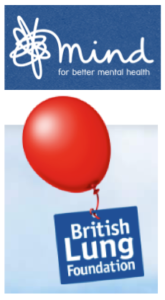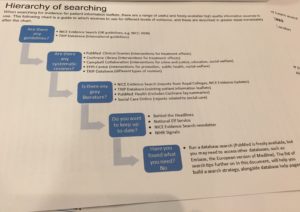 If the events of 2016 have told us anything, it’s that people can write any old rubbish and post it online as fact. And people will believe them. Especially if those people are vulnerable or anxious.
If the events of 2016 have told us anything, it’s that people can write any old rubbish and post it online as fact. And people will believe them. Especially if those people are vulnerable or anxious.
And no one is more vulnerable or anxious than when it comes to researching health concerns. The internet is our first port of call for any worry – but news articles can leave us feeling confused and worried about what research shows and evidence recommends. I wrote about this in relation to antidepressants in pregnancy here.
Hundreds of other articles identify our most vulnerable moments and use them to drive traffic to their advert loaded pages. If you’re struggling to conceive it’s hard to avoid clicking on an article entitled ‘Trying to get pregnant – 10 proven sperm killers!’
On the same search results page I found ‘10 things to do if you want to conceive’ and ’10 myths about trying to conceive’. They were basically the same and no one was any the wiser.
Reliable, balanced, current and evidence based information

It’s really important that people have access to reliable, balanced, current and evidence-based health information. Which is where the Information Standard comes in. Any organisation achieving the Information Standard has undergone a rigorous assessment to check that their information production process generates high quality, evidence-based, balanced, user-led, clear and accurate quality information.
Clear and accessible
I have written to the Information Standard for both Mind and the British Lung Foundation. Different organisations have slightly different information production processes but all of them involve checking for guidelines and systematic reviews, researching trials and existing information, assessing the quality of the evidence, referencing material accurately, involving experts and people with lived experience and regularly reviewing feedback and updating products to reflect changes in evidence.
“I have reviewed a number of pieces for Mind and this was the most comprehensive and easy to navigate and understand. It was written simply but not simplistically and had a great deal of information written in an informative and straightforward manner.” – Lived experience reviewer for Mind on one of my first drafts
I also have to make sure it is clear and accessible to everyone – using language people actually use. Experts may know everything about their subject but in depth knowledge can sometimes get in the way of clarity. People with lived experience know what worked for them but those experiences are often quite specific. My job can sometimes involve balancing these approaches with the style and tone of the charity and the needs of a digital-first approach.
“Every step we make towards complexity, we are excluding someone. If you feel patronised you’ll get over it. If you don’t get the medical help you need because you don’t understand the information, you may not” – Grant Stewart, Head of Consumer Health, BMJ
Common pitfalls
Yesterday I went to an official Information Standard evidencing and referencing event. One of the highlights was a talk from the Head of Consumer Health and the Lead Digital Content Editor from the British Medical Journal. The BMJ conduct an independent product sample check for the Information Standard assessments. They told us the common issues they come across regularly. There were no surprises really – I think that both Mind and the British Lung Foundation avoid these pitfalls.
Inappropriate language was sometimes used, including:
- using language that does not address the person with the problem or their family/carer (where appropriate)
- talking about the patient like an object who has stuff ‘done to them’
- using medical jargon or terms that could be explained better
- presenting side effects/prognosis in an unnecessarily negative way without putting it in context or noting treatments for side effects
- using language that does not promote informed choice (such as ‘you will’ or ‘you must’)
- using unintentionally ambiguous phrases – ‘it is effective’ (at what?)
Statistics were sometimes presented in a range of different ways within one product (54%, 2 in 4, one quarter).
Inaccuracies were rare but sometimes information was outdated and did not include new research. Products were sometimes inaccurate because they did not include the full detail. Issues around evidence was most likely to come up with new, obscure, experimental treatments or with rare conditions.
I was interested to note that the biggest problems seemed to be around language and style – people found making products accessible harder than ensuring they are evidence based and balanced.
George finished with another excellent quote:
There are two types of writing – warm human prose that invites the reader in – and everything else. If you understand what someone needs and why they are reading your product then everything else will follow…
Health advice on forums?
Finally, I wanted to highlight this research – Health Advice from Internet Discussion Forums: How Bad Is Dangerous?. It looks like people are starting to consider the issue of online health information from new angles – recognising that (for good or bad) another key source of online health information is other people in forums. It is only a small study so I’ll be keeping my eye out for more.

2 thoughts on “Writing to the Information Standard for Mind and the British Lung Foundation”